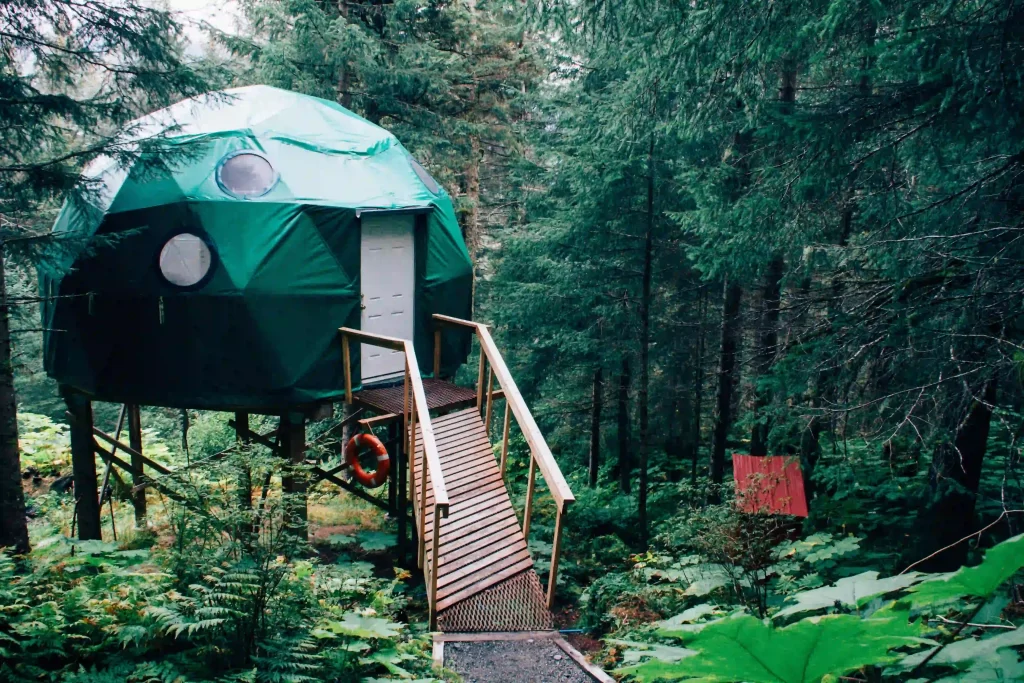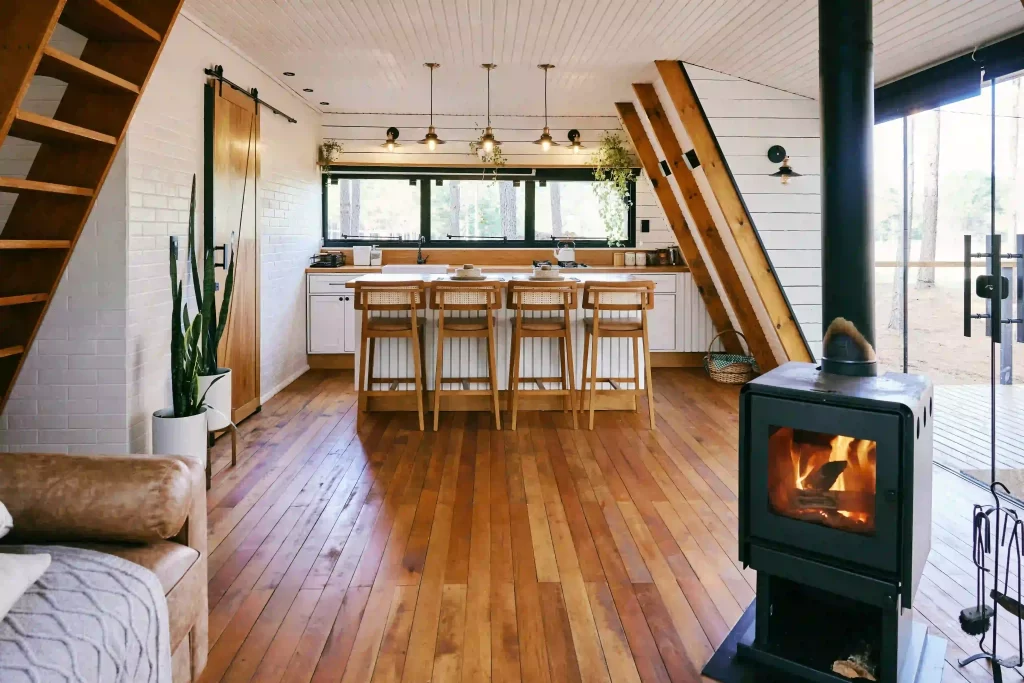Introduction
Get ready for an enlightening discussion on the art of scaling your short-term rental business. Prepare to dive deep into this captivating industry as we reveal the secrets that can turn your modest venture into a thriving empire. Join us on an exciting journey as we unveil invaluable insights and equip you with a powerful arsenal of strategies to conquer the realm of short-term rentals.
Definition of Short-Term Rental Business
Before we begin, let us first establish a clear understanding of what precisely constitutes a short-term rental business. In essence, it is an enterprise wherein property owners or managers offer accommodations for transient guests seeking temporary stays. These guests tend to seek alternatives to traditional hotels and opt for furnished apartments, vacation homes, or even unique spaces like treehouses and yurts.
The allure lies not only in the spaciousness and privacy offered by such accommodations but also in their ability to create authentic experiences for travelers immersed in local cultures. This thriving industry is predominantly facilitated by online platforms like Airbnb, Vrbo (formerly known as HomeAway), and Booking.com, among others.
Importance of Scaling for Growth and Profitability
In any entrepreneurial endeavor, growth is essential for long-term success. The same holds true for your short-term rental business – expansion is key!
Scaling refers to strategically increasing the size and scope of your operations with the aim of maximizing growth potential and profitability. The benefits of scaling are manifold: increased revenue streams generated through higher occupancy rates as well as premium pricing opportunities for multiple properties; enhanced operational efficiency through streamlined processes powered by automation and technology integration; improved economies of scale with shared resources like maintenance personnel, cleaning services, and guest support staff.
To remain stagnant in the face of a rapidly evolving market would risk being left behind. Scaling your short-term rental business is not just a desirable aspiration; it is an imperative path toward achieving sustainable growth, financial prosperity, and, ultimately, your place among the industry’s trailblazers.

Understanding the Short-Term Rental Market
Overview of the Global Short-Term Rental Industry
The global short-term rental industry has witnessed tremendous growth in recent years, revolutionizing the way people travel and experience accommodation. Short-term rentals provide travelers with unique, personalized, and often more affordable alternatives to traditional hotels. This industry encompasses a wide range of rental options, including apartments, houses, villas, and even unique properties like treehouses or yachts.
The popularity of short-term rentals can be attributed to several factors. Firstly, travelers seek authentic experiences that allow them to immerse themselves in local communities rather than being confined to impersonal hotel rooms.
Moreover, short-term rentals often offer more space and amenities compared to hotels, making them particularly appealing for families or large groups. Additionally, the advent of online platforms such as Airbnb and Vrbo has facilitated easy booking processes and provided a platform for property owners to connect with potential guests.
Key Players and Major Platforms
When it comes to short-term rentals, there are two major players dominating the market: Airbnb and Vrbo (formerly known as HomeAway). Airbnb: Founded in 2008, Airbnb quickly became a household name in the travel industry.
With over 7 million listings worldwide across more than 220 countries and regions, Airbnb offers diverse accommodations that cater to various budgets and preferences. The platform provides hosts with an opportunity to monetize their properties by renting them out on a short-term basis while enabling travelers to discover unique stays.
Vrbo: Established in 1995 as HomeAway before rebranding in 2020 as Vrbo (Vacation Rentals By Owner), this platform offers vacation rental properties primarily focused on family-oriented experiences. Vrbo differentiates itself by providing larger accommodations suitable for groups or families who require multiple bedrooms or communal spaces.
Apart from these major platforms, there are also regional and niche players that cater to specific markets. These include Booking.com, TripAdvisor, and regional platforms such as FlipKey (USA), Stayz (Australia), and Ctrip (China).
Market Trends and Growth Projections
The short-term rental market continues to experience rapid growth globally. According to recent reports, the market size is projected to reach $108.6 billion by 2027, with a compound annual growth rate (CAGR) of 3.4% from 2020 to 2027. One notable trend in the industry is the evolution of niche markets and specialized rental options.
This includes luxury properties catering to high-end travelers seeking exceptional experiences, as well as unique stays like eco-friendly accommodations or off-grid retreats. Furthermore, advancements in technology have played a significant role in shaping the market landscape.
With the rise of online platforms and booking systems, travelers now have greater access to a vast array of rental options worldwide. Additionally, technological innovations such as smart locks, home automation systems, and property management software have enhanced operational efficiency for hosts.
Overall, it is evident that the short-term rental market is poised for further expansion fueled by changing traveler preferences and ongoing advancements in technology. This presents immense opportunities for aspiring entrepreneurs looking to scale their short-term rental businesses.

Benefits of Scaling Your Short-Term Rental Business
Increased Revenue Potential
Scaling your short-term rental business opens up a world of exciting opportunities, one of the most enticing being the potential for increased revenue. By expanding your reach and having multiple properties at your disposal, you can tap into a larger pool of potential guests.
With a broader reach, you have the ability to attract guests from different locations and demographics, ultimately leading to higher occupancy rates. A diversified portfolio of properties allows you to cater to various preferences and budgets, ensuring you can capture a wider market segment.
Furthermore, when scaling your short-term rental business, you gain the advantage of charging premium rates for multiple properties. As demand increases and your reputation grows, guests perceive value in booking with an established brand that offers multiple high-quality accommodations.
This enables you to justify higher prices based on factors such as location desirability, property amenities, and exceptional guest experiences. By strategically pricing your listings across different seasons or events, you can optimize revenue generation while maintaining competitiveness within the market.
Enhanced Operational Efficiency
As your short-term rental business scales up, operational efficiency becomes paramount in managing multiple properties seamlessly. Through automation and technology integration, such as using channel managers or property management software systems, you can streamline various processes involved in property management.
These systems allow you to synchronize calendars across platforms and automate tasks like guest communication and check-ins/outs. By reducing manual efforts required for handling reservations and inquiries individually for each property, this enables efficient time utilization by freeing up resources that can be redirected towards enhancing the guest experience.
Moreover, scaling your business brings economies of scale in terms of maintenance, cleaning, and guest services. With more properties under management or ownership comes greater bargaining power when negotiating contracts with service providers or staffing agencies.
This allows you to source reliable professionals at competitive rates to handle routine tasks like cleaning, maintenance, and guest support. The ability to leverage economies of scale also enables you to implement standardized processes, ensuring consistent quality across all your properties and enhancing overall guest satisfaction.

Streamlined Processes through Automation and Technology Integration
With the advancement of technology in the hospitality industry, scaling your short-term rental business becomes increasingly feasible and efficient. Integrating automation tools, such as smart locks or self-check-in systems, minimizes the need for physical key exchanges and enhances security while reducing time-consuming administrative tasks. Additionally, by utilizing channel managers or property management software platforms, you can effortlessly synchronize availability calendars across multiple booking platforms.
This prevents double bookings and eliminates manual updates on each platform individually. Furthermore, automation allows for seamless communication with guests throughout their stay.
Sending personalized welcome messages or automated check-in instructions not only saves time but also enhances the guest experience by providing prompt responses to inquiries or requests. Integration with customer relationship management (CRM) tools helps track guest preferences and enables targeted marketing efforts for future stays or promotions.
Scaling your short-term rental business offers a multitude of benefits that go beyond mere expansion. By increasing revenue potential through higher occupancy rates and premium pricing for multiple properties, you can maximize profitability in a competitive market.
Enhancing operational efficiency through streamlined processes via automation and technology integration ensures smooth management across diverse properties while optimizing resource allocation. Ultimately, embracing scalability empowers you to provide exceptional experiences for guests while driving sustainable growth in your short-term rental venture.
Strategies for Scaling Your Short-Term Rental Business
Acquiring Additional Properties
When it comes to expanding your short-term rental business, one of the most crucial strategies is acquiring additional properties. The decision to either purchase or lease these properties is a significant consideration. Purchasing offers long-term stability and potential appreciation, while leasing provides more flexibility and less upfront financial commitment.
Careful evaluation of potential locations based on demand, regulations, and competition is imperative. Analyzing factors such as tourist attractions, local events, and proximity to transportation hubs can help identify areas with high rental potential.
Furthermore, understanding local laws and regulations regarding short-term rentals ensures compliance while avoiding any legal complications. In terms of financing options for property acquisition, exploring various routes like mortgages, loans, or partnership opportunities can open doors to investment possibilities.

Expanding Your Online Presence
In today’s digital age, an effective online presence is paramount for scaling your short-term rental business successfully. Optimizing your listings with professional photography and compelling descriptions can significantly impact the conversion rate of potential guests.
Captivating visuals that highlight the unique features of your property will entice travelers to choose your accommodations over others in the market. Furthermore, utilizing social media marketing channels allows you to interact directly with a wider audience and build brand awareness in a more personalized manner.
Engaging content, behind-the-scenes glimpses of your rentals, and special promotions can captivate users’ attention while fostering a sense of trust and connection. Additionally, implementing a comprehensive search engine optimization (SEO) strategy helps increase organic traffic to your website by optimizing keywords related to your rentals in online searches.
Outsourcing Tasks and Building a Team
As your short-term rental business expands rapidly through scaling efforts, it becomes crucial to outsource tasks effectively and build a dedicated team to handle operations efficiently. Identifying key roles, such as property managers and cleaners, ensures smooth day-to-day operations. Clearly defining their job descriptions and hiring criteria helps attract the right individuals who align with your business goals and values.
Establishing strong relationships with reliable service providers, such as maintenance personnel or concierge services, ensures prompt and high-quality guest experiences. By outsourcing these tasks to specialized professionals, you can focus on strategic decision-making that drives growth and profitability.
Implementing Effective Pricing Strategies
Implementing effective pricing strategies is essential for optimizing revenue as you scale your short-term rental business. Utilizing dynamic pricing tools allows you to adjust rates in real-time based on factors like demand fluctuations, local events, or seasonality.
By offering competitive prices during peak seasons or events, you can maximize revenue while maintaining high occupancy rates. Moreover, considering different pricing models, such as offering discounted weekly or monthly stays, can attract longer-term guests while ensuring consistent income streams throughout the year.
Conclusion
As you embark on scaling your short-term rental business, embracing these strategies will pave the way for sustainable growth and profitability. Acquiring additional properties through strategic evaluation of locations and financing options provides a solid foundation for expansion.
Simultaneously, expanding your online presence through captivating visuals, social media marketing efforts, and SEO optimization enhances brand visibility and increases bookings organically. Outsourcing tasks efficiently enables focused attention on core business aspects while building a dedicated team ensures seamless operations that leave a lasting impression on guests.
Implementing effective pricing strategies maximizes revenue potential throughout the year. By utilizing these strategies in conjunction with careful planning and adaptation to market trends, you can confidently navigate the path to scaling your short-term rental business while reaping the rewards of success in this thriving industry.
Navigating the bustling vacation rental industry can seem daunting, but worry not. We’ve got you covered! In our article How to Make Your Vacation Rental Stand Out, we share the secrets behind giving your property a competitive edge and creating an irresistible retreat for guests. Plus, don’t miss out on our comprehensive The Ultimate Cleaning and Maintenance Checklist for Your Short-Term Rental Property to ensure your home stays in tip-top shape for a seamless turnover, boosting your guests’ satisfaction and, ultimately, your bottom line. Keep reading and start scaling your rental business today!










